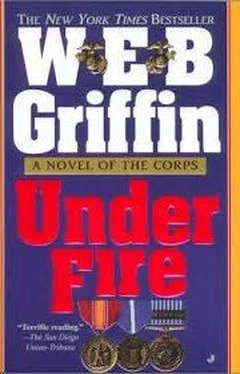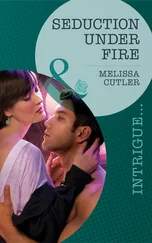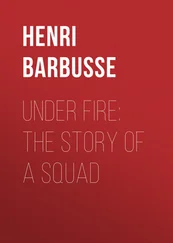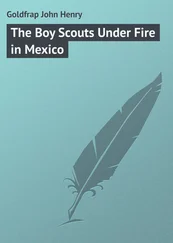Griffin W.E.B. - The Corps 09 - Under Fire
Здесь есть возможность читать онлайн «Griffin W.E.B. - The Corps 09 - Under Fire» весь текст электронной книги совершенно бесплатно (целиком полную версию без сокращений). В некоторых случаях можно слушать аудио, скачать через торрент в формате fb2 и присутствует краткое содержание. Год выпуска: 0101, Жанр: Старинная литература, на английском языке. Описание произведения, (предисловие) а так же отзывы посетителей доступны на портале библиотеки ЛибКат.
- Название:The Corps 09 - Under Fire
- Автор:
- Жанр:
- Год:0101
- ISBN:нет данных
- Рейтинг книги:5 / 5. Голосов: 1
-
Избранное:Добавить в избранное
- Отзывы:
-
Ваша оценка:
- 100
- 1
- 2
- 3
- 4
- 5
The Corps 09 - Under Fire: краткое содержание, описание и аннотация
Предлагаем к чтению аннотацию, описание, краткое содержание или предисловие (зависит от того, что написал сам автор книги «The Corps 09 - Under Fire»). Если вы не нашли необходимую информацию о книге — напишите в комментариях, мы постараемся отыскать её.
The Corps 09 - Under Fire — читать онлайн бесплатно полную книгу (весь текст) целиком
Ниже представлен текст книги, разбитый по страницам. Система сохранения места последней прочитанной страницы, позволяет с удобством читать онлайн бесплатно книгу «The Corps 09 - Under Fire», без необходимости каждый раз заново искать на чём Вы остановились. Поставьте закладку, и сможете в любой момент перейти на страницу, на которой закончили чтение.
Интервал:
Закладка:
"I'm checked out in the Avenger," Dunn said, simply. "I flew one as recently as last week."
McDavit met his eyes.
"I'd need the skipper's permission," he said.
"I've already asked. He said it's up to you."
"You must want to see this guy pretty bad. When the word gets out that you've been flying the truck, everyone will wonder how you fucked up."
"I do," Dunn said, simply.
"Sure, Colonel," McDavit said. "But please don't bend my bird. I'm not sure they even make parts for it anymore."
Lieutenant Colonel William C. "Billy" Dunn regarded be-ing devious as about as unacceptable-even despicable-a behavior for a Marine officer as bold-faced lying. He was being devious now, and it made him very uncomfortable, but he didn't know how else he could handle the situation.
It had started when he told Master Sergeant Mac McGrory to sit on the aerials of the rice field where someone had stamped "PP" and an arrow into the mud.
He just hadn't had time to think about it then-the loud-speakers had blared "Pilots, man your aircraft" while he was still looking at the aerials-but that didn't justify his subsequent behavior. Which, on sober analysis, had been both unprofessional and devious.
On that first mission, right after seeing the aerials, he had diverted from the mission plan, dropped down to the ground, and flown over the wreckage of Pick's Corsair. He knew where that was, but he didn't know where the muddy rice paddy was. The only thing McGrory had said was that it was "near" where Pickering had gone down, and he hadn't asked "how near?" or "in which direction?"
He thought that he could possibly find it because it was a muddy-as opposed to water-filled-rice paddy, and there probably wouldn't be too many of those.
There were. The bombing, and probably artillery as well, had ruptured the dirt walls of more than a dozen pad-dies near the wreckage of Pick's Corsair and let the water escape. And during his one pass at 200 knots-he could not fly over the area more than once-it had been impossi-ble to look for "PP" and an arrow in all of them.
He hadn't found the one he was looking for, but he had seen Korean fanners hard at work restoring the mud walls of several of the paddies.
When he overflew the location the next day, now armed by Chief Young with a more precise location of what he had come to think of as "Pick's rice paddy," he found proof of the industry of Korean paddy rice farmers, even in the middle of war: there was water in all the paddy fields. The bastards must have worked all night!
The only proof that someone had stamped out "PP" and an arrow was in the aerial photos.
The Marines have a long-standing tradition of not leav-ing their dead and wounded on a battlefield. It is almost holy writ.
There were several problems with that near-sacred tradi-tion in this circumstance.
The first was that Dunn didn't know that Major Malcolm S. Pickering, USMCR, had done the stamping.
And even if he had, the odds were that he had done so immediately after getting shot down. In the opinion of an expert in the field of operations behind the enemy's lines-Captain Kenneth R. McCoy-the odds were that Pick was now either a prisoner, or the North Koreans had shot him. It was unlikely that he was hiding out in the area, waiting to be rescued. For one thing, there didn't seem to be any place for him to hide.
If he took the photographs to General Cushman, he was sure that Cushman-probably after asking some very pointed questions about why Dunn hadn't brought the pho-tographs to him immediately, and not taken two days to do it, obviously lowering the chances of a successful rescue- would order an immediate rescue attempt.
Dunn doubted that Cushman would risk sending one of the four Sikorsky helicopters to look for Major Malcolm S. Pickering. There were only four of them-not enough- and when they weren't flying General Craig around the battlefield, they were transporting wounded Marines to medical facilities.
Pick Pickering would not want to be responsible for put-ting helicopters-and their pilots-at risk looking for him when they could be more gainfully employed carrying some shot-up Marine, who otherwise might die, to a hospi-tal.
That left the Piper Cubs. There were more of those, but not enough, either. Dunn couldn't fly helicopters, but he could fly a Cub. He was also a lieutenant colonel, and he knew that General Cushman was going to decide that while there were a number of lieutenants and captains who could fly Cubs, there were very few lieutenant colonels around commanding fighter squadrons. Dunn knew he would not be allowed to go looking for Pick in a Cub. Gen-eral Cushman would look askance at him for even asking if he could.
But the lieutenants and the captains would go flying low behind enemy lines, because the Corps didn't leave its dead and wounded on the battlefield. And very likely, at least one of them would get shot down.
It had to be considered, too, that Major Malcolm S. Pickering, USMCR, would not be where he was-if in-deed he was there-if he hadn't been trying to be the First Locomotive-Busting Ace in the history of Marine aviation.
And Brigadier General Fleming Pickering, USMCR, had to be considered, too. Dunn really admired General Pickering and thought he knew him well enough to know that he had accepted the loss of his son and gone on doing his duty. Pick's father would be the first to agree that using the helicopters to carry the wounded and the Cubs to direct artillery fire, or otherwise make themselves useful to the First Marine Brigade (Provisional), had a higher priority than being put at risk to maybe be able to rescue one offi-cer.
And if he heard about the stamped-out PP and arrow, he would naturally want to believe it was Pick, and that would tear the scab off his wounded heart.
The flip side of all this, of course, was that Pick may have stamped out his initials and an arrow to show his planned course-or maybe that was disinformation; he knew where the American lines were-and might be hid-ing out somewhere, maybe literally up to his ears in a feces-fertilized rice paddy, and by now getting pretty hun-gry and discouraged.
And if one of Pick's pilots was down, and needed to be looked for with a Cub, Pick would be out there flying it, and worrying about what General Cushman would say about a squadron commander taking a risk like that later, not about the risk to his own skin.
I just can't leave the sonofabitch out there. Even if he deserves it. He wouldn't leave me out there, and I can't leave him.
Dunn had always heard there was no such thing as a hopeless situation. Until now, he had never believed it.
There was only one thing he could think of to do, and that was find Killer McCoy and dump the situation in his lap.
[FOUR]
K-l USAF AIRFIELD
PUSAN, KOREA
1105 8 AUGUST 1950
Captain James Overton, the Marine liaison officer at K-l, was surprised when Lieutenant Colonel William C. Dunn climbed down from the cockpit of the Avenger. But not too surprised to forget to take his shoes off his desk, stand up, and come to attention as Dunn came into his office.
"As you were," Dunn said, smiling, putting him at ease.
"Good morning, sir," Overton said. "Didn't expect to see you flying the COD."
"Well, Overton, life is full of little surprises, I've found," Dunn said.
He took the envelope of photos from inside his flight suit.
"You know what this is," Dunn said.
"Yes, sir."
"What time does Captain McCoy usually come by to pick it up?"
"Sir, a sergeant comes by and picks it up," Overton said, looked at his watch, and added, "usually between 1230 and 1300."
"I have to see Captain McCoy," Dunn said. "You think the sergeant would know where he is? Is there a phone where we can reach him?"
"I don't think so, sir," Overton said. "I get the feeling, sir, that they're out of town someplace."
Читать дальшеИнтервал:
Закладка:
Похожие книги на «The Corps 09 - Under Fire»
Представляем Вашему вниманию похожие книги на «The Corps 09 - Under Fire» списком для выбора. Мы отобрали схожую по названию и смыслу литературу в надежде предоставить читателям больше вариантов отыскать новые, интересные, ещё непрочитанные произведения.
Обсуждение, отзывы о книге «The Corps 09 - Under Fire» и просто собственные мнения читателей. Оставьте ваши комментарии, напишите, что Вы думаете о произведении, его смысле или главных героях. Укажите что конкретно понравилось, а что нет, и почему Вы так считаете.










